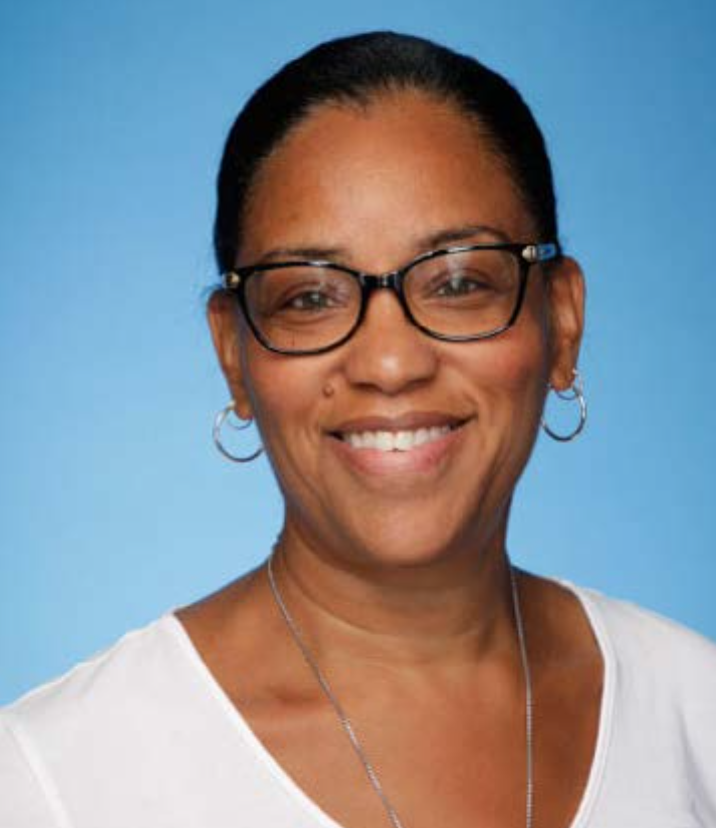Mrs. Freeman Becomes Permanent Chair of DEIB
May 18, 2023
Following the departure of Dr. Omari Keeles at the beginning of this year, Upper School Science Teacher Erika Freeman was asked to take over as DEIB Director. Freeman has been working as interim chair since July, and in February became the full-time director. Here’s what she plans to change about DEIB:
One of the biggest changes this year is the immense expansion of the DEIB department. According to Freeman, Keeles used to run the department with just a few other staff; there is now a full team of Poly staff working to keep DEIB functioning successfully. “One of the biggest changes is that it’s gone from a one person show to having a team of people to work with. This year we have some people who create programming or DEIB periods, some people who are responsible for affinity and alliance spaces, some people who work with faculty,” Freeman said.
Next year, Freeman plans to change the DEIB discussion groups in a number of ways. “There will be some changes in how the time gets utilized and maybe the construction of the groups. I’m thinking about not keeping the kids in cohorts.” She also believes that in the future student engagement should increase during this period.
Freeman also hopes to address instances of racism and ignorance at Poly. “It’s unfortunate when students blow off the DEIB block, because when I hear about instances of kids using the N-word or ethnic slurs, and then I also know that kids hide during the period. It takes time to build understanding and empathy for other people and when kids make conscious decisions to not be engaged that makes it more difficult for the people who do choose and care and prevents them from understanding why things matter. So that is something we have been planning for and thinking about.” Freeman said she hopes students will come to recognize that the period is not a punishment and it is there to help students understand more about the people in their community. This year attendance has been much stricter to ensure that kids are not skipping the period, but Freeman said she knows the issue still exists and is brainstorming solutions for the problem next year.
This year, Freeman has noticed that student leaders have been utilizing their power more than before. “I want the students who have stepped up to be leaders to continue that in a more formal way. Student leaders who have stepped up and said ‘these are things that we care about’ and ‘we want to talk about it with other student leaders,’ I want to empower them more.” Student leaders have created things like the DEIB task force, designated to uniting all the different affinity groups and cover cross-cultural issues and topics. “It’s kind of cool,” Freeman said. “I didn’t say we need to have a task force — kids said we need to have a task force and these things matter and not just sitting and talking about what we should do, but also talking about how. The student voice matters.”
Freeman would like to expand DEIB past Poly and participate in city-wide diversity events in partnership with other schools. “I would like more students to seek out opportunities outside of school and attend conferences for students to see what’s going on in other independent schools in New York and collaborate with them. I would like to see more engagement with the larger community.” Additionally, Freeman wishes to make changes to Poly Connected next year so it can be more engaging for students and hopefully even fun. “I’d like students to be more engaged in that kind of experience where we are working and learning together.”
Other changes that have been made this year include the MENA (Middle Eastern North African) being added, the period has stopped being split into 30-minute halves, giving each group more time to present, and the addition of the DEIB discussion groups. Freeman emphasizes though that she “didn’t come in to make grand sweeping changes, because it’s not a one-person show.”
Freeman views the DEIB director position as important because it prioritizes student voices. “To me, students are always at the core of what matters most in this school. Having them feel validated, included, and feeling like my classroom, the school, my office, is a place where they are free to learn, but also share how they’re feeling and what they’re thinking and knowing that there is somebody that is going to pay attention to them. So, my focus has always been and will always be the students.”
Freeman ultimately decided to take the position full-time because she couldn’t see why she shouldn’t. “When I was asked to take over the department, I didn’t have a reason why I shouldn’t do this. Because my classroom teaching is more important? No. Having somebody in this school who’s going to think about teachers and students and prioritize their needs is very important at Poly. It’s very important for students and faculty and staff to know that I’m doing my best for them. And knowing that I will always do my best for them was a very great reason for me to take the position and a very great way to approach Diversity, Equity, Inclusion, and Belonging at Poly.”

























